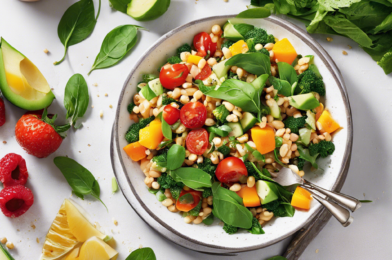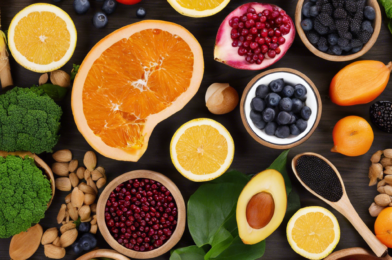As a health-conscious individual, you’re likely always on the lookout for ways to feel your best. While modern medicine has undoubtedly revolutionized healthcare, natural remedies have been used for centuries and offer a wealth of benefits for common ailments. These remedies often utilize ingredients found in nature, providing a holistic approach to healing that works in harmony with your body. So, let’s explore some of these time-tested, natural solutions!
First and foremost, let’s talk about the mighty ginger root. Ginger has been used for centuries in traditional medicine practices to soothe an upset stomach and alleviate nausea. Whether you’re dealing with motion sickness, morning sickness, or the after-effects of a rich meal, ginger can be your best friend. Try grating some fresh ginger into hot water for a soothing tea or opt for ginger candy or capsules if you prefer a quicker fix.
Another powerhouse remedy is apple cider vinegar. This versatile liquid is made by fermenting apple cider and has a wide range of uses. When consumed, it can help balance your body’s pH levels and improve digestion. Some even claim it can aid in weight loss and reduce blood sugar spikes. A simple way to incorporate apple cider vinegar into your routine is by adding a tablespoon to a glass of water and drinking it before meals.
For those dealing with skin issues like eczema, psoriasis, or simply dry skin, oatmeal is a wonderful natural remedy. Colloidal oatmeal, made from finely grinding oats, is often used to relieve itching and irritation. It has anti-inflammatory properties and can help lock in moisture, providing relief from uncomfortable skin conditions. Simply add some oatmeal to a warm bath and soak your worries away.
Honey is yet another natural powerhouse with a multitude of benefits. When it comes to soothing a sore throat, honey is a miracle worker. Its antibacterial properties can help fight infection, and its thick consistency coats the throat, providing instant relief. Manuka honey, in particular, is renowned for its medicinal qualities and is widely used to promote healing.
In addition to these remedies, nature has an abundance of solutions for our health concerns. Natural remedies often provide a gentler, more holistic approach to healing, working with your body’s natural processes. They are easily accessible, affordable, and come with minimal side effects, making them an appealing option for many.
Now, let’s move on to the benefits of essential oils. These highly concentrated plant extracts are a wonderful way to harness the power of nature. For example, lavender essential oil is renowned for its calming properties and can aid in relaxation and sleep. A few drops on your pillow or in a warm bath can work wonders for promoting a good night’s rest. Similarly, tea tree oil, with its antimicrobial properties, is a staple for treating acne and promoting clear skin.
The power of nature doesn’t stop there. For individuals looking to boost their immune system, vitamin C-rich foods are a must. Citrus fruits, in particular, are nature’s immunity superstars. Oranges, lemons, and grapefruits are packed with this vital vitamin, helping to strengthen your body’s defenses against illness. Simply incorporating more of these fruits into your diet can provide a natural boost to your overall health.
When it comes to mental health, nature again provides a solution with St. John’s Wort. This herbal remedy has been used for centuries to boost mood and ease symptoms of depression and anxiety. While it’s important to seek professional help for mental health concerns, incorporating St. John’s Wort into your routine may provide an additional layer of support. Always consult a healthcare professional before starting any herbal supplements, especially if you are already taking medication.
Natural remedies are a wonderful way to take control of your health and well-being, and with so many options available, there’s sure to be a natural solution to support your journey to wellness. Whether it’s a soothing cup of ginger tea or a relaxing bath with oatmeal, these remedies provide effective relief without the potential side effects of modern pharmaceuticals. It’s a testament to the healing powers that nature holds, waiting to be unlocked and utilized for our benefit.
The world of natural remedies is vast, and we’ve only scratched the surface. By embracing these natural solutions, you’re taking a proactive approach to your health and discovering the wonders that nature has to offer. So, the next time you’re dealing with a common ailment, why not give these natural alternatives a try? Your body will thank you for it.
As always, remember to consult with your healthcare provider before starting any new treatments, especially if you have underlying health conditions or are taking medication. This will ensure that your natural remedy of choice is safe and suitable for your specific needs and won’t interfere with any existing treatments.







